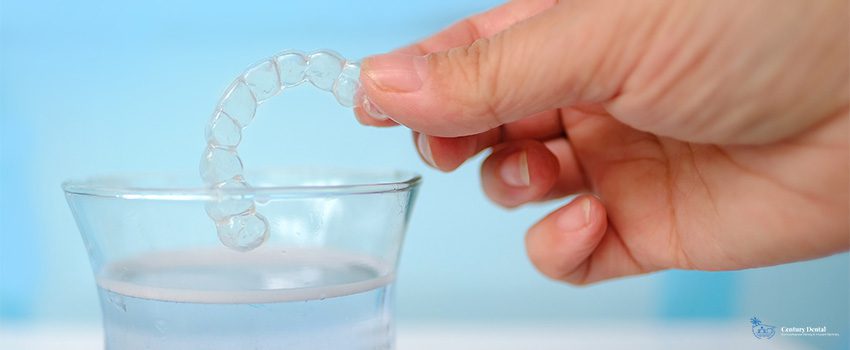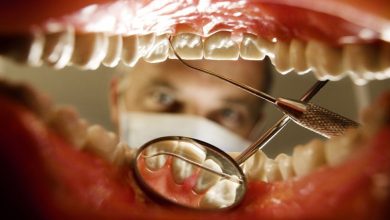How Often Should You Go for a Dental Cleaning: The Ultimate Guide

You should go for a dental cleaning every six months to maintain good oral health. Regular dental cleanings help prevent cavities and gum disease, keeping your teeth and gums healthy.
Plus, dental cleanings also give your dentist a chance to identify and address any potential problems early on. By sticking to a regular cleaning schedule, you can ensure that your oral health is well-maintained and any issues are promptly addressed by your dentist.

Credit: www.centurydental.org
Importance Of Regular Dental Cleanings
Dental cleanings are an essential part of maintaining good oral health. Regular dental cleanings are important for a variety of reasons. Firstly, they help prevent tooth decay and cavities by removing plaque and tartar buildup. Plaque is a sticky film that forms on the teeth and contains harmful bacteria. If not removed, it can lead to cavities and tooth decay. Gum disease is another common issue that can arise if oral hygiene is not maintained. Regular dental cleanings can significantly reduce the risk of gum disease by removing bacteria and plaque from the gum line. Lastly, dental cleanings contribute to overall oral health. They help maintain fresh breath, keep teeth whiter, and prevent various dental problems. It is recommended that individuals should visit their dentist every six months for a dental cleaning to ensure optimal oral health.
Factors To Consider For Frequency Of Dental Cleanings
It is important to maintain regular dental cleanings to keep your oral health in check. However, the frequency of these cleanings can vary depending on several factors.
Age and overall health: Younger individuals and those who are generally healthy may need dental cleanings every six to twelve months. On the other hand, older adults and those with certain health conditions may require more frequent cleanings, about every three to four months.
Oral hygiene habits: If you have impeccable oral hygiene habits and follow a strict oral care routine, you may be able to go longer between cleanings. However, if you struggle with maintaining good oral health habits, more frequent cleanings may be necessary.
Presence of dental conditions or concerns: If you have underlying dental conditions, such as gum disease or tooth decay, or if you have concerns such as teeth stains or bad breath, your dentist may recommend more frequent cleanings to address these issues.
Ultimately, it is best to consult with your dentist to determine the appropriate frequency of dental cleanings based on your individual needs and oral health condition.
General Guidelines For Adults
General guidelines for adults recommend annual dental cleanings for most individuals. These regular cleanings are crucial for maintaining optimal oral health and preventing potential dental problems. However, certain individuals with specific dental conditions may require more frequent cleanings. For these individuals, biannual cleanings are typically recommended to effectively manage their dental health.
In order to determine the ideal frequency of dental cleanings for an individual, it is important to consult with a dental professional. They will evaluate your oral health, dental history, and any existing dental conditions to determine the appropriate schedule for cleanings.
Regular dental cleanings not only help remove plaque and tartar build-up but also allow the dentist to identify and address any potential issues at an early stage. By staying consistent with dental cleanings, you can maintain a healthy smile and prevent more serious dental complications in the future.
Special Considerations For Children And Teens
When it comes to dental cleaning for children and teens, there are a few special considerations. The first dental cleaning should ideally take place by the age of one. This early visit is crucial to ensure the proper development of your child’s oral health. Starting early allows the dentist to monitor the growth of their teeth and identify any potential issues or abnormalities.
As children age, the frequency of dental cleanings may vary. Generally, it is recommended to visit the dentist every six months for routine cleanings and check-ups. However, in certain cases, more frequent cleanings may be required. This could include children and teens who have braces or other orthodontic appliances, those with dental concerns or issues such as tooth decay, and those at a higher risk for dental problems.
Regular dental cleanings are essential for children and teens to maintain good oral hygiene and prevent future dental problems. By developing healthy habits early on, they can enjoy a lifetime of healthy smiles.
Special Considerations For Seniors
Seniors have an increased risk of periodontal disease due to various factors such as age-related changes in oral health and the presence of underlying health conditions. It is important for seniors to maintain a regular schedule of dental cleanings to prevent and manage periodontal disease.
The frequency of dental cleanings for seniors may vary depending on individual oral health needs. For seniors with good oral health and no underlying health conditions, a dental cleaning every six months may be sufficient. However, seniors with a history of periodontal disease or certain health conditions may require more frequent cleanings, such as every three to four months.
Regular dental cleanings can help remove plaque and tartar buildup, which can contribute to the development of gum disease. In addition, dental cleanings provide an opportunity for the dentist to evaluate the overall oral health of seniors, including checking for any signs of oral cancer or other oral health issues.
Seniors should consult with their dentist to determine the appropriate frequency of dental cleanings based on their individual needs and oral health condition. Maintaining regular dental cleanings is essential for seniors to maintain optimal oral health and prevent the progression of periodontal disease.
Common Signs Of Dental Issues
Regular dental cleanings are essential to maintain good oral health. Neglecting dental hygiene can lead to various dental issues. One common sign of dental problems is persistent bad breath. Bad breath can be caused by plaque buildup, gum disease, or tooth decay. Another sign to watch out for is bleeding gums. Bleeding gums indicate inflammation and gum disease. Tooth sensitivity is another indication of dental issues. Sensitivity to hot or cold foods and drinks can be a result of enamel erosion or gum recession. Finally, tartar buildup is a sign that a dental cleaning is overdue. Tartar is hardened plaque that cannot be removed by brushing alone and requires professional cleaning.
Symptoms That Indicate Professional Dental Cleaning
Symptoms that Indicate Professional Dental Cleaning:
Receding gums: Receding gums are a common sign that you may need a professional dental cleaning.
Loose teeth: If you notice that your teeth feel loose, it could be a sign that you need professional dental cleaning to address the underlying issue.
Changes in tooth alignment: If you have noticed any changes in the alignment of your teeth, it is essential to seek professional dental cleaning for proper evaluation.
Proper Brushing Techniques
Maintaining proper oral hygiene is crucial in order to ensure a healthy smile. One of the key components of a good dental care routine is brushing your teeth at least twice a day. By doing so, you can effectively remove plaque and food particles that can lead to tooth decay and gum disease. To achieve optimal results, it is essential to employ the right brushing technique. This includes selecting the right toothbrush and toothpaste that suits your specific needs and preferences. When brushing, make sure to hold the toothbrush at a 45-degree angle against your gum line and use short, circular motions. Cover all surfaces of your teeth, including the front, back, and chewing surfaces. Pay extra attention to the hard-to-reach areas in the back of your mouth. Lastly, don’t forget to brush your tongue to remove bacteria and freshen your breath.
Importance Of Flossing
Proper flossing technique is essential in maintaining good oral health. The American Dental Association recommends flossing at least once a day to remove plaque and food particles from between teeth and along the gumline. When flossing, it is important to use a gentle back-and-forth motion, sliding the floss beneath the gumline to clean hard-to-reach areas. Flossing should be done before brushing to ensure optimum results.
Flossing on a regular basis helps prevent gum disease, tooth decay, and bad breath. By removing plaque and bacteria that cannot be reached by brushing alone, flossing promotes healthier gums and stronger teeth. Incorporating flossing into your daily oral hygiene routine is beneficial for maintaining optimal dental health and preventing future dental problems.
Additional Oral Care Practices
When it comes to maintaining good oral hygiene, regular dental cleanings are essential. Dental cleanings, also known as prophylaxis, remove plaque and tartar build-up, which helps prevent tooth decay and gum disease. It is generally recommended to have a dental cleaning every six months, but the frequency may vary based on individual needs. Additional oral care practices can further enhance your oral health.
Using a mouthwash can be beneficial as it can help kill bacteria and freshen your breath. Look for an antibacterial mouthwash that contains fluoride to provide extra protection against tooth decay. Tongue cleaning is another important practice to include in your oral care routine. Cleaning your tongue can help eliminate bacteria and reduce bad breath. Using a tongue scraper or gently brushing your tongue with your toothbrush can effectively clean and freshen your breath.
In addition to regular dental cleanings and proper oral hygiene practices, scheduling regular dental check-ups is crucial. Dentist visits can help identify any potential dental issues at an early stage and prevent them from progressing into more serious problems. Your dentist will also assess your overall oral health and provide personalized recommendations for maintaining optimal oral hygiene.
Frequently Asked Questions On How Often Should You Go For A Dental Cleaning
How Often Should You Get A Teeth Cleaning?
To maintain optimal oral health, it is recommended to get a teeth cleaning every six months. Regular cleanings help remove plaque buildup, tartar, and stains that brushing and flossing alone cannot eliminate. Keeping this routine is essential for preventing gum disease and maintaining a bright, healthy smile.
Is Teeth Cleaning Necessary Every 6 Months?
Yes, teeth cleaning every 6 months is necessary as it helps remove plaque, tartar, and stains. Regular cleanings prevent gum disease, cavities, and improve oral health. Having a professional cleaning ensures a thorough and deep clean that brushing and flossing alone may not achieve.
Is Dental Cleaning Once A Month Too Much?
Getting dental cleaning once a month is not too much. Regular cleanings help maintain oral health by removing plaque and tartar buildup. It’s recommended to visit a dentist every six months for cleanings, but more frequent cleanings may be needed if there are specific dental issues or concerns.
Is Teeth Cleaning Every 3 Months Too Much?
Teeth cleaning every 3 months isn’t too much. It helps prevent plaque buildup, gum disease, and other oral health problems. Regular cleanings ensure your teeth stay healthy and avoid costly treatments in the long run. Keep up with routine cleanings for optimal oral hygiene.
Conclusion
Regular dental cleanings play a crucial role in maintaining oral health. It is generally recommended to have a cleaning every six months to remove plaque and tartar buildup, reduce the risk of gum disease, and detect any underlying dental issues early on.
However, the frequency may vary depending on individual needs and the dentist’s recommendation. Remember, prevention is always better than cure, so prioritize scheduling your dental cleanings to keep your smile healthy and beautiful.





